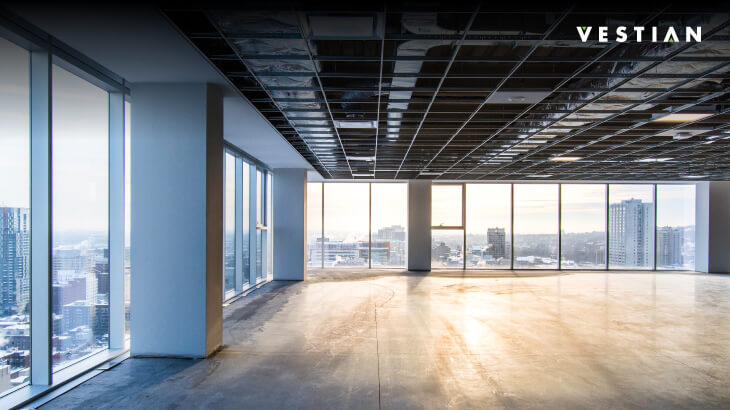2022 was supposed to be a year of accelerating growth as we recover from the pandemic, especially for commercial real estate sectors that were particularly hard hit, such as retail, office and hotels. While the economic prognosis is still good, the Delta variant is raising doubts about top line forecasts. What can CRE expect in this environment?
Michael Silver, CEO and Chairman of Vestian, Responds
In short, CRE should prepare for a long road ahead.
Although the public prognosis seems to be positive and new leases are being announced, this is not an accurate picture. The market is not going to get better for a while – and the Delta variant will only prolong this. There is a much longer road to recovery. This reality should be better understood and accepted. Senior leaders who renew large, inflexible leases for long periods are making a mistake. The longer employees get comfortable working remotely, the harder it will be to entice them to come back. Technology will only get stronger, and our need for space will only diminish further.
Let’s take a look at the effects 9/11 had on the real estate sector. It is an indicator to help set expectations. As with 9/11, there was an intense fear of returning to work. So much so, that it took about three to five years for the office market to bounce back to where it was pre 9/11. Today, of course, we have seen a similar fear with COVID and now the emergence of the Delta variant. The difference between then and now is twofold.
- COVID has had a broader impact on the real estate market as a whole. Not only has the office industry taken a huge hit, but COVID also had devastating effects on retail, hotels, restaurants, malls, etc. We’re seeing the ripples – in terms of the effect on the market – are far further reaching than they were 20 years ago. Recovery for real estate and real estate values will be harder than it was in 2001.
- Technology is far stronger today. Twenty years ago, technology did not support remote work. So, although there was fear of returning to an office with 9/11, employees were required to come back due to the lack of options and technology infrastructure. Today, technology, the growth of AI, and other advancements have enabled remote working, removing the immediate need for employees to return. Technology will only get better, stronger, and more convenient – meaning we will need even less and less office space.
The Specifics:
In early 2020, I predicted that US office vacancy rates would reach 30% in a market of ~8 billion square feet of total US office inventory. Assuming this, it would take 7-10 years for the market to bounce back to 2019 levels. We saw vacancy near 30% and it rose higher in several key markets. Since then, about 1 billion square feet of new inventory have been added to the market. This means it will take 10+ years to reach “normalcy” and I believe we will still only hit about 85% occupancy. For example, Chicago’s West Loop has recorded only 54% occupancy and they’re still adding new space to the inventory.
The office market is trying to adjust financially. Landlords and developers are discounting rates 15-20%, with some markets reaching 25-30% reductions with concessions. I do not predict this number to go down due to growing availability and increased reliance on technology. CRE should anticipate a minimum of a 30% drop in valuation across the board.
CRE should expect a prolonged recovery for all asset types. Although the public prognosis seems to be positive, there is a longer road to recovery. Businesses should not be quick to re-sign big office leases for long terms. Instead, they should reevaluate their real estate plan. Businesses should work with real estate advisors who share this realistic viewpoint to best position themselves for the future. Now is the time to rethink your strategy and gain competitive advantage.
